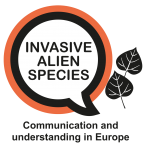Home » Soil Transport Cluster (IAS)
Soil Transport Cluster (IAS)

Introduction to the Soil Transport Cluster
Many invasive alien plant species can cause structural damage to buildings through the expansion of their root and rhizome networks. The complete eradication of these species is extremely difficult and may require the removal and disposal of large quantities of soil in the affected area.
The disposal or treatment of such soil requires rigorous (and costly) management to ensure complete eradication of the invasive alien species. The presence of some invasive alien species can also have devastating impacts on biodiversity.
As examples, the flatworm Arthurdendyus triangulatus, can cause catastrophic loss of earthworms which are important to the healthy functioning of soil ecosystems and Phytophthora ramorum, a disease, can cause dieback of foliage and results in the death of oak trees and several other tree species.
Aim of Establishing the Soil Transport Stakeholder IAS Platform
The objective of the soil transport platform is to foster a constructive dialogue within and among stakeholder organisations and competent authorities involved in the cluster of pathways (both on “impacting” and “impact” sides) and to develop joint initiatives to address the problem.
- discuss IAS and the required prevention measures related to the cluster of pathways,
- discuss IAS of Union concern and the improvement of the implementation of the prevention measures provided for in the IAS Regulation,
- discuss options for stakeholders involved in the introduction and spread of IAS (cause) which may help them to continue and expand their activities, while reducing the associated risks (e.g. by replacing alien species by native species) and contributing to halting the loss of biodiversity,
- co-operate on the development and joint implementation of an IAS prevention campaign for the aquatic ornamental cluster,
- discuss how prevention and control of IAS can support the objectives of nature conservation in protected areas, particularly in Natura 2000 areas.
The platform is not intended to act as a European Commission “Expert Group” or a similar entity with consultative functions but instead aim to exchange good practice between one another and come up with new ways to deal with IAS.
Role of the Project Team/Platform Secretariat
The team’s role is an advisory neutral third party in support of all the other parties. The solutions will have to be discussed and agreed between the stakeholders. The project team will facilitate this dialogue and provide input from experts on IAS as desired by the participating platform members.
- Neutrality with regard to the issues under discussion. The team would only make suggestions on the process to be followed but this would also be adaptable depending on requests of the participants.
- Equality in supporting every platform member equally in terms of understanding what is important to her/ to him. Considering all viewpoints as being equally valid and taking proper account of knowledge shared from different sources.
- Transparency with regard to the decisions the team makes on the process and the reasons for making them
- Confidentiality with regard to who provides the team with what information. Information gathered (e.g. through interviews) will be reported to the Commission as well as to the other stakeholders involved but no information will be linked to a specific individual.